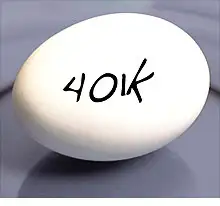401(k) matches are back in fashion

The 401(k) is enjoying a wee bit of a corporate comeback.
Fidelity Investments, which says it's the leading provider of workplace retirement savings plans in the US, disclosed Thursday morning that some of the companies which reduced their financial contributions to 401(k) plans during the financial meltdown have started ponying up money again, or at least plan to.
More specifically, Fidelity says that of the eight percent of companies that reduced or suspended their matches of employee contributions earlier this year, 27% have either reinstated their match already or plan to in 2010. The reinstatement trend is especially strong at plans with 5,000 participants or more: Fidelity says that 44% of those employers are bringing back the company match.
A company match has a ripple effect beyond the dollars it adds to employees' 401(k) balances; its presence or absence also influences whether employees decide to participate in a plan and how much of their own income they defer if they do. At companies where the match was suspended, says Fidelity, 11% of employees decreased their deferral rates -- nearly double the rate of employees who pulled back from contributions to plans which didn't change their match. (Fidelity's numbers come from a survey of all participants for which the company keeps records, representing more than 11 million workers at more than 17,000 plans.)
Suggesting some more dim lighting at the end of the meltdown tunnel -- for those workers, that is, who still have jobs that still come with retirement plans -- Fidelity also said that in the third quarter of 2009, the average account balance rose nearly 13%, to $60,700, from the balance at the end of the prior quarter. Participants' "personal rates of return," which Fidelity calculates from a formula that excludes various account activities, amounted to a median of 0.4% -- the first positive number in seven quarters.
Add More Money to your favorite RSS reader. Subscribe at http://rss.cnn.com/moneyfeatures.rss.